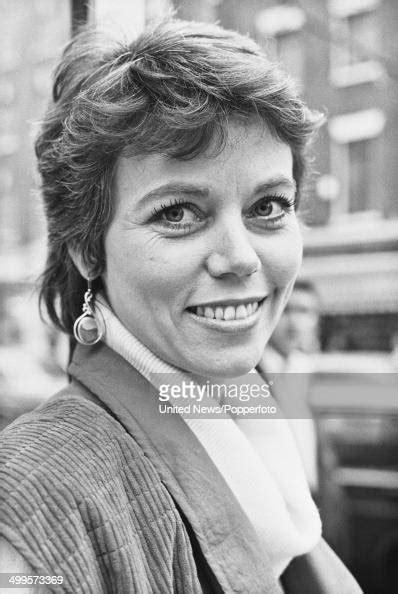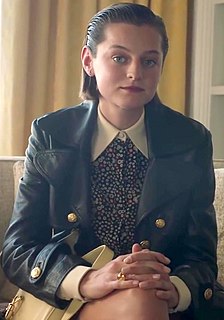A Quote by Penny Junor
Diana became a superstar when she became a part of the Royal Family because she brought youth and glamour and fun into a staid and dusty institution, and at times she eclipsed the Prince of Wales. It was one of the early problems within their marriage.
Related Quotes
There became a clear connection from Diana's unstable childhood to her looking for something welcoming. We knew she was a very warm person who gravitated towards people. She was looking to be embraced in something very warm and very familiar, and she didn't find that at all; she found the exact opposite with the royal family.
Princess Diana talking to Prince William about the loss of her title Her Royal Highness: She turned to William in her distress. She (Princess Diana) told me how he had sat with her one night when she was upset over the loss of HRH, put his arms around her and said: Don't worry, Mummy. I will give it back to you one day when I am king.
She became politically conscious thanks to Studs Terkel and the radio. She started reading all the books we brought home from college and was a great fan of Noam Chomsky. She was a real lefty and yet was not able to meet her dream of becoming an artist. She got drafted into motherhood big time - seven kids - and that wasn't the life that she had planned. So she opened the path so that I could be the artist that she wanted to be.
I think my mother became the muse because she had everything when she was in Hollywood: she had the marriage, the success, the money, all the films she wanted to do and yet even her, she had a longing and wanted to work with a film that had meaning, something more profound. And I think that was very touching to father.
What I like about The Sims is that I don't have a normal life at all, so I play this game where these people have these really boring, mundane lives. It's fun. My Sims family is called the Cholly family. I don't know why I picked that name; it's kind of random. The teenage daughter is my favourite, because I just had her go through this Goth phase. She's really kind of nerdy and she just became a concert violinist, which is pretty huge for the family. And she got into private school. But she started wearing black lipstick and she dyed her hair purple. It's pretty huge.
She was humbled, she was grieved; she repented, though she hardly knew of what. She became jealous of his esteem, when she could no longer hope to be benefited by it. She wanted to hear of him, when there seemed the least chance of gaining intelligence. She was convinced that she could have been happy with him, when it was no longer likely they should meet.
She often spoke to falling seeds and said, "Ah hope you fall on soft ground," because she had heard seeds saying that to each other as they passed. The familiar people and things had failed her so she hung over the gate and looked up the road towards way off. She knew now that marriage did not make love. Janie's first dream was dead, so she became a woman.
I've always thought - and I don't even know if I'd be right for the part - that Jean Seberg would make a great biopic. She was in Jean-Luc Godard's 'Breathless,' she played Joan of Arc. She had this eventful and traumatic adulthood, she thought the FBI was after her, and she became a darling of the French New Wave.
She stared at herself in the mirror. Her eyes were dark, almost black, filled with pain. She'd let someone do that to her. She'd known all along she felt things too deeply. She became attached. She didn't want a lover who could walk away from her, because she could never do that - love someone completely and survive intact if her left her.
My aunt was Frances Hodges, who in the Fifties was the editor of 'Seventeen' and later one of the creators of 'Mademoiselle.' She was my Auntie Mame; she loved culture. She was a Quaker, but she became a milliner against all Quaker logic - they feel that fashion and art are vanities - because she loved fashion.
As if to build a fence around the fatal emptiness inside her, she had to create a sunny person that she became. But if you peeled away the ornamental egos that she had built, there was only an abbys of nothingness and the intense thirst that came with it. Though she tried to forget it, the nothingness would visit her periodically - on a lonely rainy afternoon, or at dawn when she woke up from a nightmare. What she needed at such times was to be held by someone, anyone.































